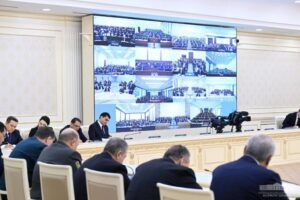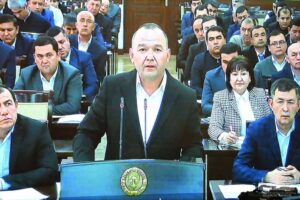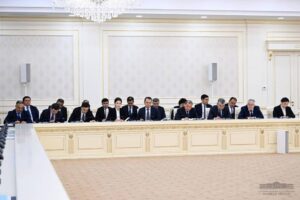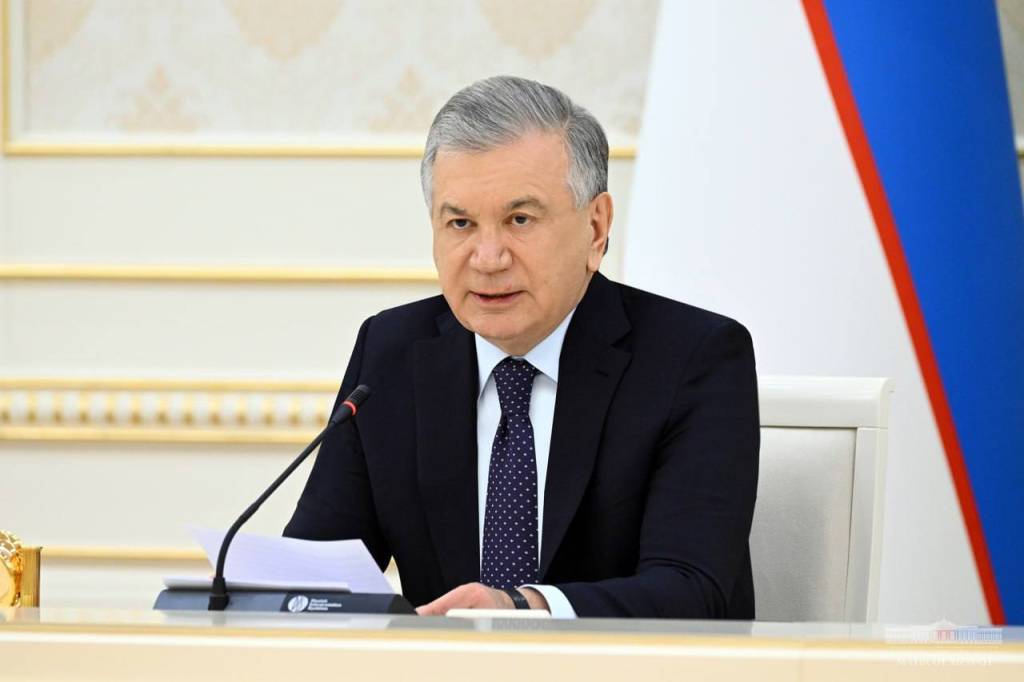Tashkent: Under the chairmanship of President Shavkat Mirziyoyev, a video conference meeting was held at which priority tasks in the field of social protection were discussed.
In accordance with Article 1 of the Constitution of our country, Uzbekistan is a social state. On 1 June 2023, a decree was adopted on the provision of high-quality social services and assistance to the population, and the National Social Protection Agency under the President of the Republic of Uzbekistan was created.
An in-depth analysis of the experience of more than ten countries with the involvement of qualified experts showed the need to improve the existing social protection system, which over the past thirty years has not undergone significant changes and was limited to the distribution of public funds. This has led to a situation where part of the population has become accustomed to relying on help without seeking to improve their situation.
For example, facts of continuous payment of benefits to able-bodied people have been revealed. Insufficient attention was paid to medical and social rehabilitation, as well as vocational training of persons with disabilities.
The President emphasized the importance of a radical rethink of the system, focusing on the targeted and effective distribution of social assistance.
– You cannot work in this area in a general manner. An individualized, professional approach to the fate of each family and individual is necessary. If social services are organized correctly, needy citizens will more easily take their place in society, said Shavkat Mirziyoyev.
At the meeting, priority areas of work were identified, with special attention paid to the development of social services and support at the mahalla level. Increased transparency and targeted study of the needs of the population made it possible to revise the list of recipients of assistance, excluding from it those who have a stable income, and organizing support for 2 thousand lonely people and those in need of care.
Despite the wide range of social services provided – 250 types – the population is not sufficiently informed about them.
In this regard, from 1 June, changes will be introduced to the procedure for determining persons in need of social protection. Exact criteria for the category of those in need will be developed and it will be specifically determined what kind of help the family needs.
The introduction of a single questionnaire will help representatives of the “seven mahallas”, when interacting with residents, identify their problems and opportunities, and create a “social portrait” of each family. Changes in the family that have occurred after assistance will be monitored.
This is not about reducing funding, but about providing assistance to people who really need it and their integration into society, it was noted at the meeting.
The provision of all social services in the mahalla will be gradually transferred to the execution of a social services agreement. In this case, both the service provider and the recipient will assume certain obligations.
The list of benefit recipients will primarily include families of persons with disabilities, deprived of parental care, those who have lost a breadwinner, as well as those who, for health reasons or other reasons, cannot work for a long time. When other citizens are included in the “social register”, not only their income, but also their expenses will be taken into account.
From 1 October, all social payments to the population will be made through the “social card”. Next year, multifunctional social service centers for rehabilitation, health improvement and training in caring for people with disabilities will be launched in 40 districts.
At the meeting, special attention was paid to supporting persons with disabilities.
Uzbekistan acceded to the Convention on the Rights of Persons with Disabilities in 2021. A number of benefits are provided for enterprises and organizations that employ such persons.
However, many institutions, streets and stops are not adapted for the movement of people with disabilities. Due to the lack of conditions in schools and colleges, parents are forced to place their children with disabilities in distant specialized boarding schools, which is very difficult for both the family and the child.
Therefore, a national system of training, employment and involvement in sports for persons with disabilities will now be created. To create a barrier-free learning and working environment for people with disabilities, the practice of determining the level of working ability will be stopped. Disability will be determined not by illness, but by taking into account a person’s ability to act independently, communicate and participate in social life.
Medical rehabilitation departments will be organized in regional central hospitals. The range of prosthetics will increase from 18 to 30 types, and the allocated funds will increase by 1.5 times; the provision of prostheses will be carried out electronically. Such funds can be obtained at home, online or through the Inson center, choosing any manufacturer.
Projects for the construction of buildings and structures will necessarily undergo an examination to create a comfortable environment for persons with disabilities. Measures will be taken to create a barrier-free environment in public transport, at stops and intersections.
Entrepreneurs, 50 percent of whose staff are workers with disabilities, will have the opportunity to directly enter into contracts with government customers. Four specialized schools will be linked to industries.
Products created by persons with disabilities through homework and handicraft production will be sold through an electronic platform.
The creation of an Association for the Development of Sports for Persons with Disabilities has been determined; they will be involved in mass sports starting from the mahalla.
The importance of creating works of art that inspire and motivate people in need of social protection is noted.
The tasks for raising children left without parental care are also defined.
From now on, issues of guardianship and trusteeship, as well as the affairs of children left without parental care, will be dealt with by social workers at the mahalla level. To achieve this, commissions for guardianship and trusteeship at khokimiyats will be abolished, and from 1 August, their powers will be transferred to the Inson centers.
A system of “specialized foster families” will be introduced for the adoption of orphans and children left without care. Care groups will be gradually opened in 160 specialized educational institutions.
The system of assistance to young people deprived of parental care will also change. Now support under the Youth Support program will be provided to such youth under 23 years of age.
Centers for social and legal assistance to minors in the system of the Ministry of Internal Affairs will be reorganized into “Schools of Life”. They will become comprehensive institutions providing assistance in the social adaptation of children with difficult upbringings.
The system for providing housing to orphans and children without parental care will also be revised. Inson centers will form a list of young people who really need housing. The cost of the housing provided will be determined based on market value, taking into account regional characteristics.
Responsible persons were given instructions to provide housing for orphans on the waiting list.
It is noted that not all women and children who have suffered from violence are covered by rehabilitation. Therefore, a separate system will be created at the mahalla level. To support young mothers in difficult situations and prevent social orphanhood, the Mother’s House service will be created. In addition, 24-hour rooms will be opened in district hospitals to provide medical and psychological assistance to victims of violence.
At the meeting, the Prime Minister, responsible persons and khokims reported on their plans for organizing a new work system.
“If we want to ensure social justice and respect for human dignity in our society, it is necessary to effectively establish a new system on the ground, provide support and motivate people in need,” the President said.


